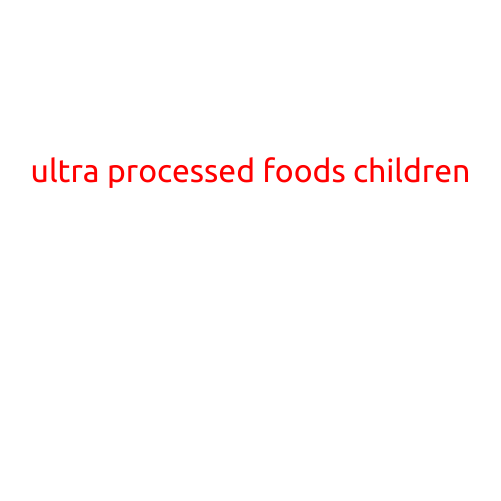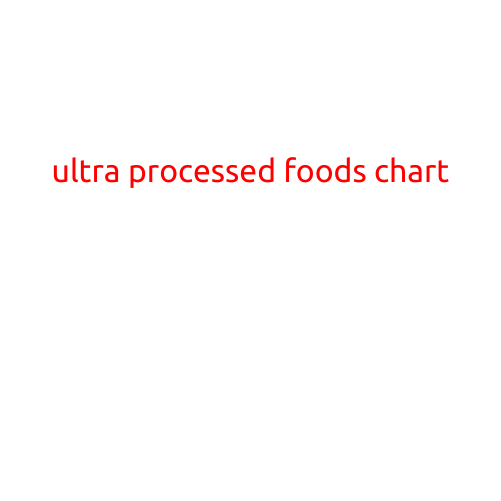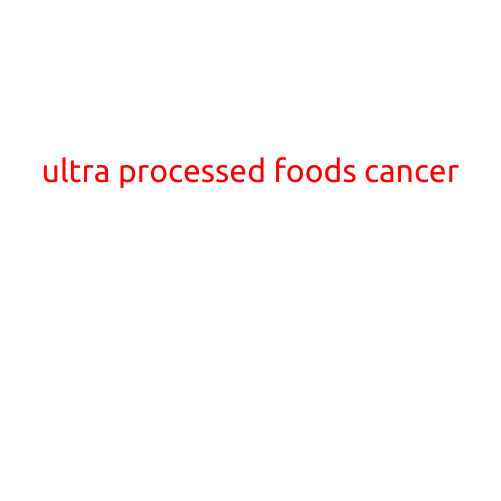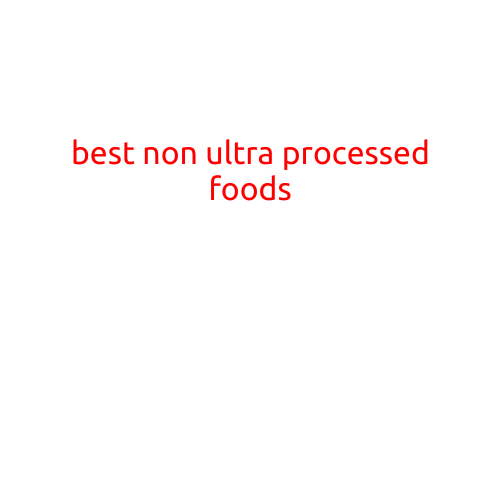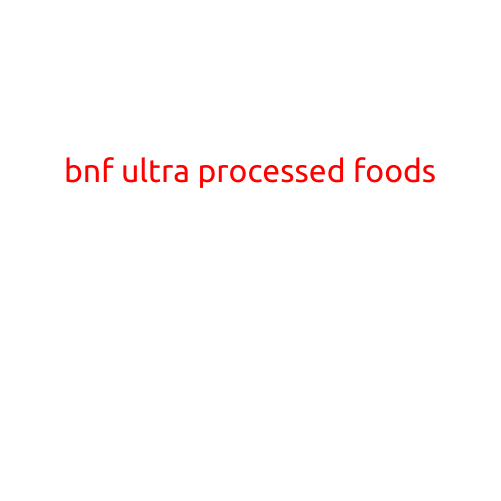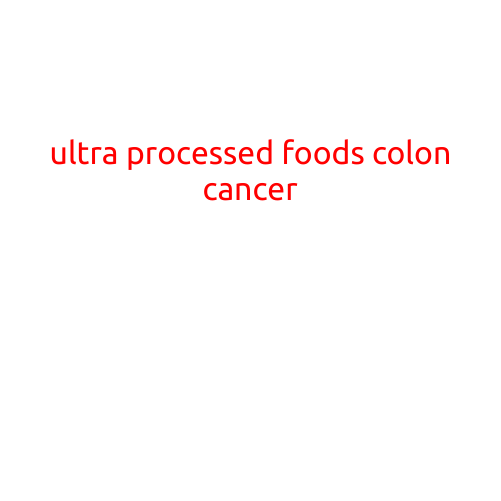
Ultra-Processed FoodsLinked to Increased Risk of Colon Cancer
A growing body of research has linked ultra-processed foods to an increased risk of colon cancer, one of the most common and deadly forms of cancer worldwide. In this article, we’ll delve into the findings of recent studies and explore the potential mechanisms by which ultra-processed foods may contribute to the development of colon cancer.
What are Ultra-Processed Foods?
Ultra-processed foods are products that have been created from a combination of natural ingredients, such as meat, dairy, and vegetables, with added substances like salt, sugar, and preservatives. Examples of ultra-processed foods include packaged snacks, sugary drinks, frozen meals, and processed meats. These foods are often designed to be convenient and appealing, but they are also high in unhealthy ingredients and low in essential nutrients.
The Link between Ultra-Processed Foods and Colon Cancer
Several studies have found that consuming a diet high in ultra-processed foods is associated with an increased risk of colon cancer. For example, a 2020 study published in the Journal of Clinical Oncology found that women who ate more than four servings of ultra-processed foods per day had a 12% higher risk of developing colon cancer compared to women who consumed fewer than two servings per day.
Another study published in the journal Gut in 2019 analyzed data from over 48,000 adults in the United States and found that those who consumed the highest amounts of ultra-processed foods had a 34% higher risk of developing colon cancer.
Potential Mechanisms by Which Ultra-Processed Foods May Contribute to Colon Cancer
Researchers believe that ultra-processed foods may contribute to the development of colon cancer through several mechanisms:
- Inflammation: Ultra-processed foods are often high in pro-inflammatory ingredients, such as omega-6 fatty acids, which can lead to chronic inflammation in the body. Chronic inflammation is a known risk factor for colon cancer.
- Disruption of the Gut Microbiome: Ultra-processed foods can disrupt the balance of beneficial bacteria in the gut, leading to changes in the way the body processes nutrients and potentially increasing the risk of colon cancer.
- Nutrient Imbalance: Ultra-processed foods are often low in essential nutrients like fiber, vitamins, and minerals, and high in unhealthy ingredients like added sugars and saturated fats. This imbalance can contribute to chronic disease, including colon cancer.
- Epigenetic Changes: Exposure to ultra-processed foods may also affect epigenetic markers in the body, which can lead to changes in gene expression that increase the risk of colon cancer.
Reducing Your Risk of Colon Cancer through Dietary Changes
While the evidence is clear that ultra-processed foods are linked to an increased risk of colon cancer, there is good news: making dietary changes can help reduce this risk. Here are some tips to get you started:
- Focus on Whole Foods: Prioritize whole, minimally processed foods like fruits, vegetables, whole grains, lean proteins, and healthy fats.
- Limit or Avoid Ultra-Processed Foods: Try to avoid or limit foods that are high in added sugars, saturated fats, and sodium.
- Cook from Scratch: Cooking whole foods from scratch can be a great way to ensure you’re getting essential nutrients and avoiding unhealthy ingredients.
- Stay Hydrated: Adequate hydration is essential for overall health, so make sure to drink plenty of water throughout the day.
- Consult with a Healthcare Professional: If you’re concerned about your risk of colon cancer, talk to a healthcare professional for personalized guidance and recommendations.
By making informed choices about your diet and focusing on whole, minimally processed foods, you can reduce your risk of colon cancer and support overall health and well-being.
